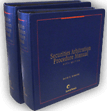You get a call from your stockbroker saying he’s found an incredible buying opportunity for you – an undervalued penny stock, a private placement, a non-public REIT or the like. After giving you some more details on why he recommends adding this new investment to your portfolio, you agree to make the purchase. A few months or a year goes by and suddenly that fantastic investment isn’t performing like your broker said it would. It’s become a huge drain on your portfolio and the money you were relying on for a family vacation, a new car or retirement has vanished.
Had you known the investment could lose so much value, you would have never bought it. Your broker attempts to justify the loss blaming market fluctuations or other unforeseen circumstances, but did you know your broker has a regulatory obligation to make sure his recommendations are individually suitable for you? A few years ago FINRA revised its “Suitability Rule” and if your broker’s recommendation was not properly tailored to meet your specific investment profile, you may be able to recoup your losses through FINRA’s Dispute Resolution program.
Under FINRA’s recent revisions, all recommendations made by a stockbroker or investment advisor must fit a customer’s investment profile. The Rule states that the broker or advisor “must have a reasonable basis to believe that a recommended transaction or investment strategy involving a security or securities is suitable for the customer, based on the information obtained through the reasonable diligence of the member or associated person to ascertain the customer’s investment profile.”[1](italics added)
Your investment profile includes the information you provided when you opened your account as well as other information you’ve given your broker throughout your time working together. In fact FINRA, under its “Know Your Customer” Rule[2], requires your broker to stay apprised of changes in your investment profile and adjust his recommendations accordingly. The information in your investment profile includes, but is not limited to your:
· age,
· other investments,
· financial situation and needs,
· tax status,
· investment objectives,
· investment experience,
· investment time horizon,
· liquidity needs,
· risk tolerance, and
· any other information the customer may disclose to the member or associated person in connection with such recommendation.
FINRA’s Suitability Rule doesn’t only apply to individual transactions. If your broker makes recommendations as part of an entire investment strategy the Suitability Rule may apply. The Rule covers recommended investment strategies involving a security or securities regardless of whether the recommendation results in a securities transaction or even mentions a specific security or securities. For example, the Rule applies to recommendations to invest in more specific types of securities, such as high dividend companies or the “Dogs of the Dow,” or in a particular market sector. It also would apply to recommendations generally to use a bond ladder, day trading, “liquefied home equity,” or margin strategy involving securities, irrespective of whether the recommendations mention particular securities.[3]
The Rule may also apply to investment strategies that involve the purchase of non-security products. In its December 2012 Notice to Members, FINRA stated, “[s]uitability obligations apply . . . to recommendation[s] of an investment strategy to use home equity to purchase securities or to liquidate securities to purchase an investment-related product that is not a security.”[4]
Finally, FINRA’s new Suitability Rule also applies to recommendations made before you formally opened your account with your broker. If you were presented with a recommendation, which leads you to open an account with the broker to complete the transaction, that recommendation must conform to the Rule, even though you weren’t a customer when it was first presented to you. This applies even if there is gap between the time you first heard the recommendation and when you open the account and perform the transaction. The suitability obligations may attach when the transaction actually occurs, but the suitability of the recommendation is evaluated based on the circumstances that existed at the time the recommendation was made.
FINRA’s revision to its Suitability Rule has placed a higher standard on stockbrokers and investment advisors when it comes to recommendations. They must have a true understanding of you, the customer, and your investment profile and goals before considering a specific purchase or sale.
If you suffered losses from an investment you believe should never have been recommended to you, the best way to determine your rights is to speak with an attorney who specializes in FINRA arbitrations.
[1] See FINRA Rule 2111. http://finra.complinet.com/en/display/display.html?rbid=2403&element_id=9859
[2] See FINRA Rule 2090. http://finra.complinet.com/en/display/display.html?rbid=2403&record_id=13389&element_id=9858&highlight=2090#r13389
[3] http://www.finra.org/web/groups/industry/@ip/@reg/@notice/documents/notices/p197435.pdf
[4] Also See Notice to Members 05-50, at 5. (“[R]ecommendations to liquidate or surrender a registered security such as a mutual fund, variable annuity, or variable life contract must be suitable, including where such liquidations or surrender[s] are for the purpose of funding the purchase of an unregistered [equity indexed annuity].”).


